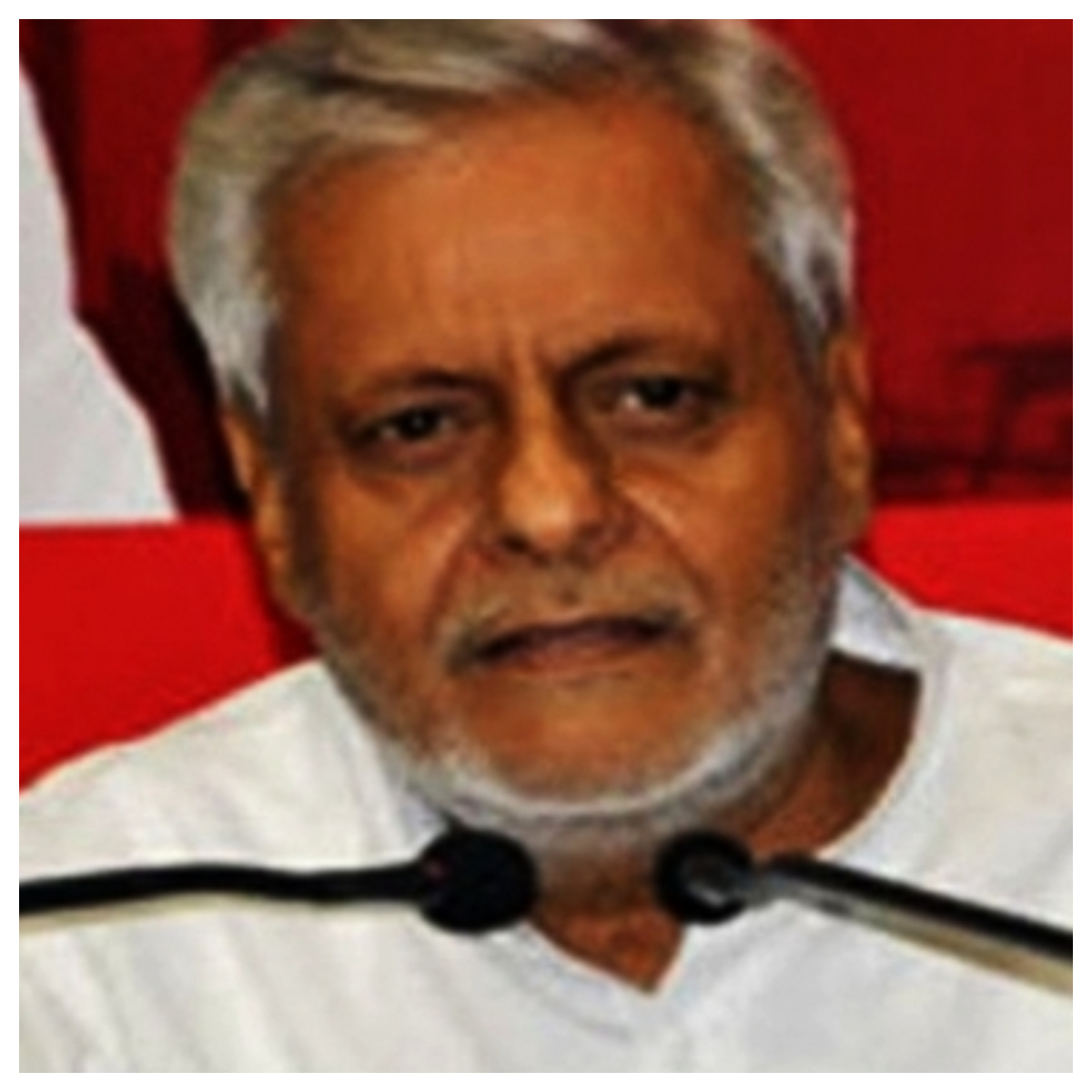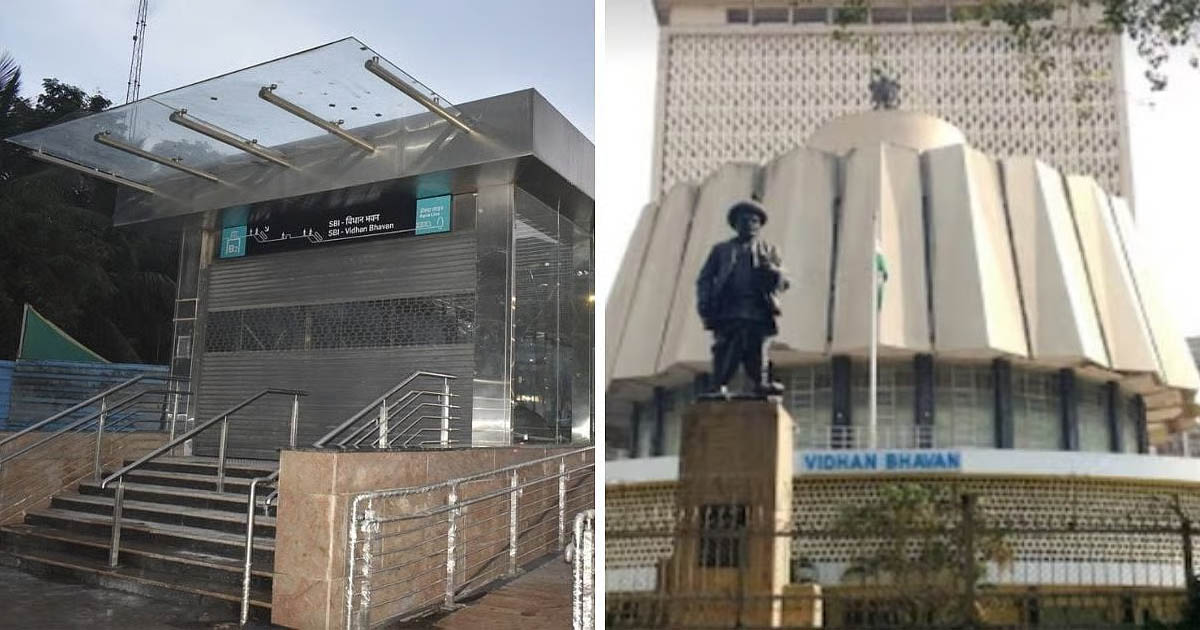Politics
Samajwadi Party throws a spanner even as its allies stay undecided

The Samajwadi Party (SP) has thrown a spanner in the Presidential elections by announcing that it will neither support a BJP candidate, nor a Congress nominee in the upcoming polls.
SP’s national spokesperson Rajendra Chaudhary said, “Our party president and quite a few senior leaders feel that SP should maintain equal distance from the BJP and the Congress in the Presidential elections.”
In political circles, SP’s decision is being seen as a clear message to the Congress to not to mess with its internal matters.
Sources said that Akhilesh Yadav had taken a strong exception to Acharya Pramod Krishnam’s recent meeting with senior SP MLA Mohammad Azam Khan in jail.
While the BJP seems to be in a comfortable position to see its nominee through in the polls, for the Congress, the Presidential elections will be a major opportunity to position itself as the main challenger to the saffron brigade in the run-up to the 2024 Lok Sabha elections.
For this, the Congress would need the support of all the BJP rivals, and SP’s latest stance could leave the Congress strategists eyeing SP votes a bit concerned.
As the electoral college which elects the President comprises all members of both Houses of the Parliament and MLAs from all the states, SP will be a noticeable player. Presently, SP and its allies have 125 MLAs, 16 MLCs and 8 MPs (both Houses).
Interestingly, none of the SP allies have so far made any comment on SP’s decision on Presidential elections.
The Rashtriya Lok Dal (RLD), according to sources, is �uncomfortable’ with SP’s posture.
“You need to take a stand in politics and cannot always queer the pitch. We do not understand what SP wants but we will take a decision at the appropriate time,” said a senior RLD leader.
The RLD has eight MLAs in the UP Assembly.
The Suheldev Bhartiya Samaj Party (SBSP) is also a Samajwadi ally with six legislators and its President Om Prakash Rajbhar is also maintaining a studied silence on the issue.
Meanwhile, according to sources, a section of senior legislators in the SP is also against the decision announced by Akhilesh Yadav.
These legislators are apparently waiting for Shivpal Singh Yadav to decide his stand on the issue and may eventually go with him.
A senior SP MLA told IANS, “In politics, we cannot build castles in the air. We have to go either with the Congress or the BJP because we are not in a position to influence the outcome of the Presidential elections. Our leadership is not even negotiating with other non-BJP parties on the issue.”
The Congress and Bahujan Samaj Party (BSP), meanwhile, have been reduced to the status of non-players in the Presidential polls from Uttar Pradesh.
The Congress has just two members in the state Assembly, while the BSP has one.
Crime
Four held for IDFC First Bank fraud; amount transferred to private firm

Chandigarh, Feb 25: Haryana Director General of Anti-Corruption Bureau, Arshinder Singh Chawla, on Wednesday said four accused were arrested in the IDFC First Bank fraud case involving government departments as the money was transferred to the Swastik Desh project, a private firm owned by some of the accused.
They have been identified as Ribhav Rishi, Abhishek Singla, Abhay Kumar and Swati Singla.
“A letter was received on February 23 regarding embezzlement of Panchayat Department funds, and a case was registered following government orders,” he told the media in Panchkula, in Haryana.
He said the Special Investigating Team (SIT), headed by Ganga Ram Poonia, arrested the accused within 24 hours.
“IDFC Bank has returned the government funds, but the matter is being investigated,” Chawla said, adding Vibhav Rishi and Abhay had masterminded this entire case.
He said the money of the people of Haryana is safe.
“A sum of Rs 300 crore was invested in a private company and money also went to AU Small Finance.”
The money was sent to the Swastik Desh project, owned by Swati Singla, and her brother Abhishek Singla, and who have been arrested as part of the ongoing investigation.
Regarding the involvement of senior government officials in the fraud, Chawla said, “It is not possible to comment at this early stage of the investigation.”
The Vigilance and Anti-Corruption Bureau found that several government departments are involved in this matter, including some accounts of the Chandigarh administration.
As per information, the main accused Ribhav Rishi, resident of Panchkula, had left his job in the bank six months ago, while Abhay Kumar had quit his job in August last year.
In a strong assertion of fiscal accountability and administrative transparency, Chief Minister Nayab Singh Saini on Tuesday informed the Assembly that the government has recovered the Rs 556 crore linked to the fraud case, including nearly Rs 22 crore in interest, within 24 hours.
Chief Minister Saini said the full amount pertaining to various government departments, boards and corporations has been credited back by IDFC First Bank into the respective departmental accounts.
He said the swift recovery was made possible through coordinated efforts between the Haryana government and senior bank officials.
Calling it a matter of public trust, Chief Minister Saini underscored that the funds represent the hard-earned money of 2.8 crore citizens of Haryana and would be utilised strictly for their welfare.
“Every single rupee belonging to the people will be safeguarded and spent only for their benefit,” he said.
The Chief Minister said a high-level committee, headed by the Finance Secretary, has been constituted to examine the matter in detail and fix accountability of the employees and officers concerned.
The committee will determine responsibility and recommend further action, if required.
Chief Minister Saini said the bank has indicated that the irregularities were primarily linked to its Chandigarh branch and involved alleged collusion at the middle and lower levels. He made it clear that no one involved in this case, whether a government official or a bank employee, will be spared.
Maharashtra
Mumbai: Vidhan Bhavan Metro Gate B-4, Shut Due To Ongoing Maharashtra Budget Session, Reopens

Mumbai: The B-4 entry/exit gate of the Vidhan Bhavan Metro Station on the Mumbai Metro 3 (Aqua Line) has been reopened to passengers, while Gate B-5 continues to remain closed as per instructions issued by the Mumbai Police. The update was shared by Mumbai Metro Line 3 authorities on the social media platform X on Wednesday. Commuters have been advised to plan their travel accordingly.
The B-4 and B-5 gates were temporarily shut from February 23 to February 25 following directives from the Mumbai Police due to heightened security measures around the Maharashtra Legislative Assembly’s Budget Session. Both gates provide direct access to the Vidhan Bhavan complex, where proceedings of the Legislative Assembly and Legislative Council are currently underway.
Given the presence of several senior political leaders and ministers in the vicinity during the session, authorities had tightened access points around the complex as a precautionary measure.
At present, Gate B-4 has resumed operations for public use, while Gate B-5 remains inaccessible until further notice. In addition to B-4, commuters can use alternate entry and exit points, including A1, A2, A3, B1, B2 and B3 gates of the Vidhan Bhavan Metro Station.
Officials have urged passengers to factor in possible movement restrictions and minor delays while planning their commute through the station during the session period.
The Maharashtra Budget session commenced on Monday, 23rd of February, with the traditional joint sitting of both Houses, addressed by Acharya Devvrat. His address began after the House resonated with Vande Mataram, the National Anthem and the State anthem Jai Jai Maharashtra Maza.
The state budget for 2026 is scheduled to be presented on March 6 by Chief Minister Devendra Fadnavis. Notably, this session marks a rare instance in the state’s legislative history, with the post of Leader of Opposition lying vacant in both the Legislative Assembly and the Legislative Council.
Crime
Odisha: Rs 4 crore seized from senior mines official’s residence

Bhubaneswar, Feb 25: In the highest-ever cash seizure by Odisha’s Vigilance Department, the anti corruption sleuths on Wednesday unearthed over Rs 4 crore in cash from the Bhubaneswar flat of Deputy Director of Mines, Cuttack Circle.
The accused, identified as Debabrata Mohanty, was apprehended on Tuesday night for allegedly accepting a bribe of Rs 30,000 from a licensed coal vendor for allowing smooth running of his coal depot and to grant permission to transport coal.
Following his arrest, Vigilance officials launched simultaneous searches at multiple locations linked to him, including his residential flat at Shree Vihar, Patia in Bhubaneswar, his parental house at Mathasahi in Bhadrak, and his office chamber in Cuttack to ascertain whether the accused Deputy Director has possessed any disproportionate assets (DA).
During the ongoing searches, cash exceeding Rs 4 crore was recovered from his flat in Bhubaneswar. The money was found concealed in trolley bags and almirahs.
Officials said the counting process is underway to determine the exact amount.
The recovery marks the largest cash seizure ever made by Odisha Vigilance.
Additionally, Rs 1.20 lakh in cash was recovered and seized from Mohanty’s office drawer and personal possession.
Apart from the cash, Vigilance officials have so far unearthed the following assets: A palatial double-storeyed building measuring approximately 2,400 sq ft at Pahala in Bhubaneswar. Gold ornaments weighing around 130 grams have also been recovered from Mohanty’s posession.
A case has been registered under Section 7 of the Prevention of Corruption (Amendment) Act, 2018, against Mohanty at the Bhubaneswar Vigilance Police Station in this regard on Monday.
Notably, Chief Minister Mohan Charan Majhi, on Monday, told the State Assembly that the Vigilance Department has registered a total 416 cases against government officers and employees in the state for taking bribes, committing financial irregularities in government fund and possession of disproportionate assets between January 1, 2024 and December 31, 2025.
-

 Crime4 years ago
Crime4 years agoClass 10 student jumps to death in Jaipur
-

 Maharashtra1 year ago
Maharashtra1 year agoMumbai Local Train Update: Central Railway’s New Timetable Comes Into Effect; Check Full List Of Revised Timings & Stations
-

 Maharashtra1 year ago
Maharashtra1 year agoMumbai To Go Toll-Free Tonight! Maharashtra Govt Announces Complete Toll Waiver For Light Motor Vehicles At All 5 Entry Points Of City
-

 Maharashtra1 year ago
Maharashtra1 year agoFalse photo of Imtiaz Jaleel’s rally, exposing the fooling conspiracy
-

 National News1 year ago
National News1 year agoMinistry of Railways rolls out Special Drive 4.0 with focus on digitisation, cleanliness, inclusiveness and grievance redressal
-

 Maharashtra1 year ago
Maharashtra1 year agoMaharashtra Elections 2024: Mumbai Metro & BEST Services Extended Till Midnight On Voting Day
-

 National News1 year ago
National News1 year agoJ&K: 4 Jawans Killed, 28 Injured After Bus Carrying BSF Personnel For Poll Duty Falls Into Gorge In Budgam; Terrifying Visuals Surface
-

 Crime1 year ago
Crime1 year agoBaba Siddique Murder: Mumbai Police Unable To Get Lawrence Bishnoi Custody Due To Home Ministry Order, Says Report


















